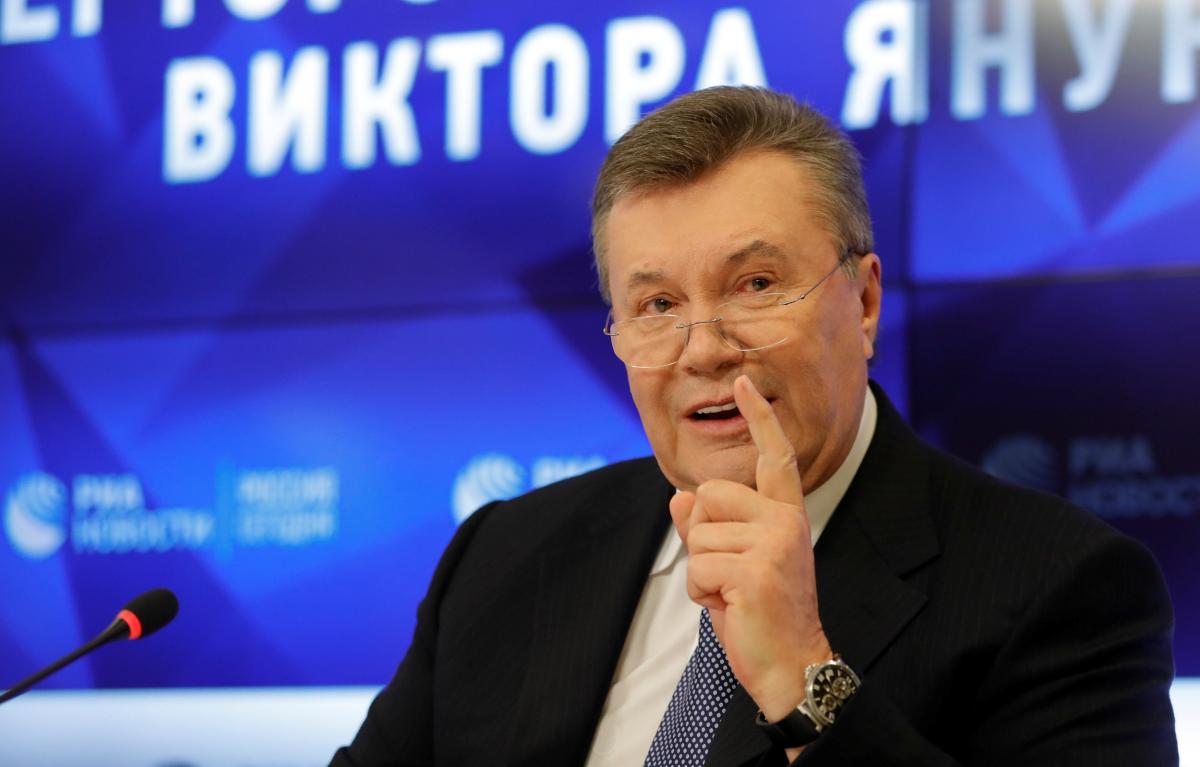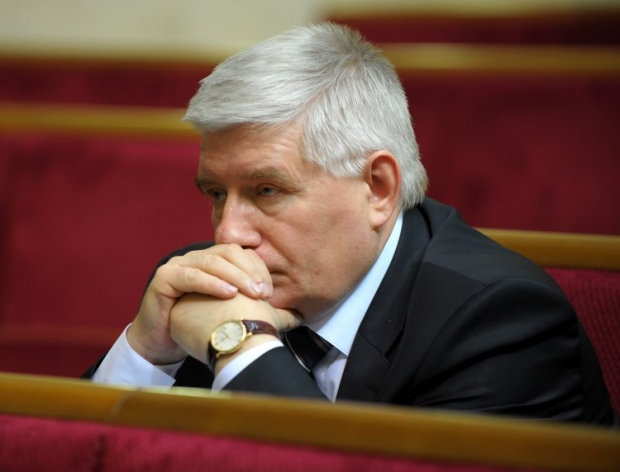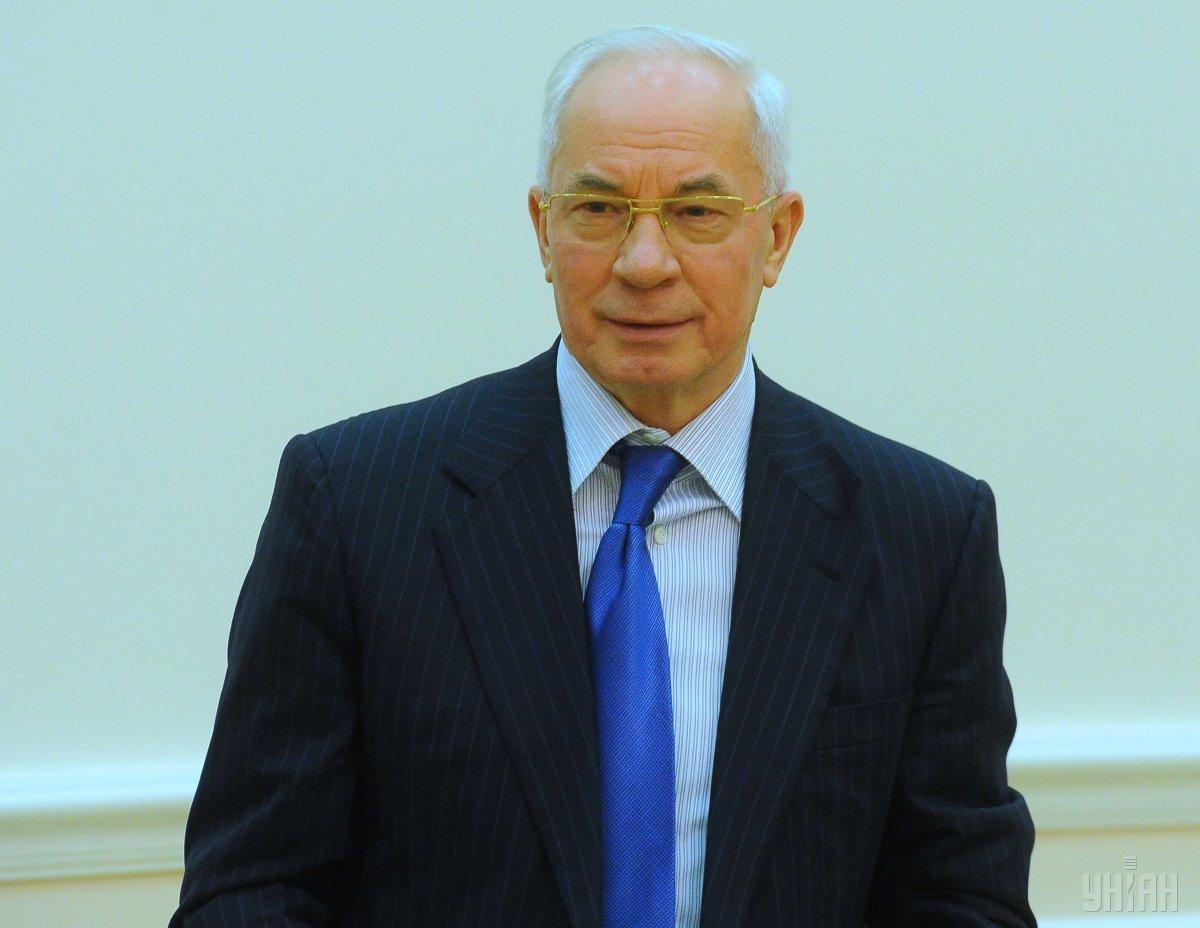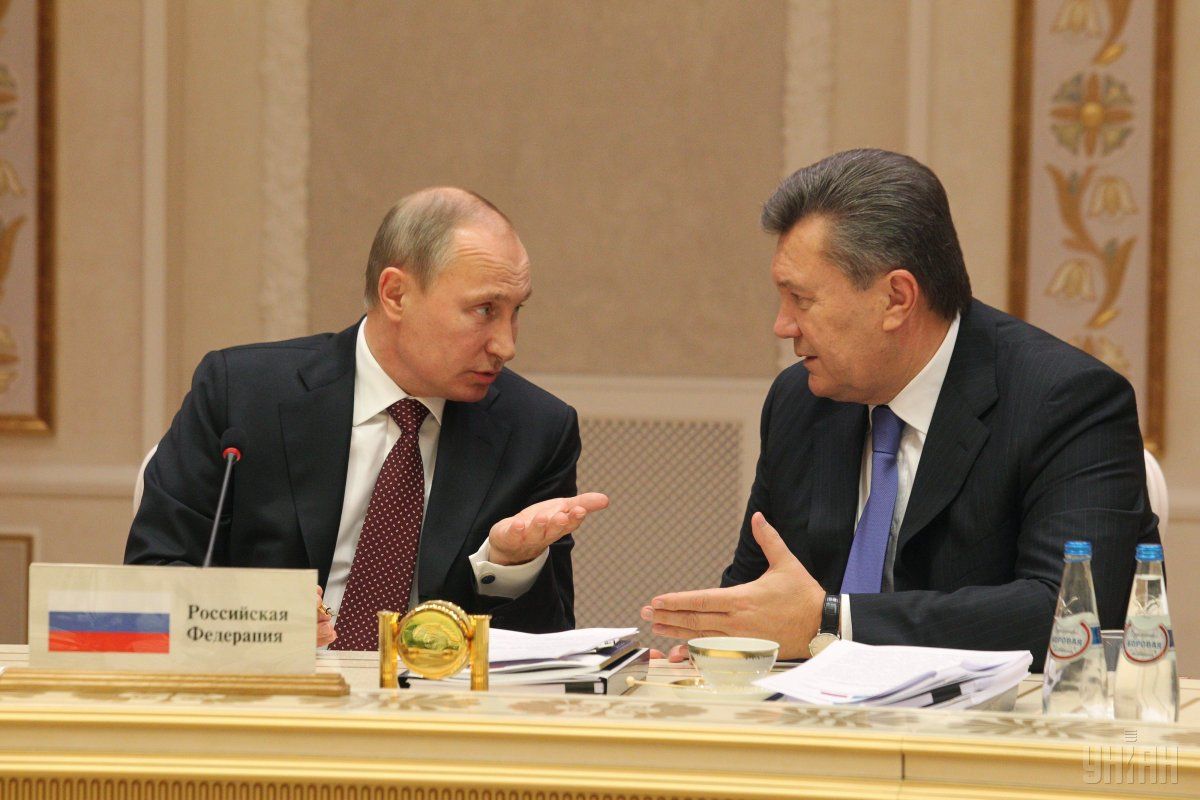
How Yanukovych's economic policies almost finished Ukraine
It's been ten years since the start of the now-disgraced Viktor Yanukovych's presidential term and six years from the day he fled from the country. Let's recall this man's role in Ukraine's most recent dramatic history.
Perhaps, over time, a deeper understanding of the reasons will come to us of how this kaleidoscope of persons and a chain of events led to the 2013-2014 Revolution of Dignity, the Heavenly Hundred, and the subsequent war Putin's Russia launched against Ukraine.
If anyone asks to describe the fugitive fourth president of Ukraine in one sentence, the following conclusion will be appropriate: he had everything or almost everything in his life, but his greed pushed him to trying to bite off a piece so big he choked on it.
I had met Yanukovych on numerous occasions over those two decades Yanukovych was part of Ukrainian politics, and all this time, I just couldn’t figure out, how could this limited and poorly educated person with a huge number of complexes could rise to the top of the political Olympus? And has a European country with a population of 40 million adopted the corrupt rules of the game he imposed, which entailed such tragic consequences.
Also interesting is an analysis of how the former head of a low-profile firm called Donetskavtotrans, nicknamed Zavhar (garage manager), began to ascend up Ukraine's high offices, subsequently sealing almost complete control over national politics and the economy.
Second president of Ukraine Leonid Kuchma knows part of the answers to the latter question, as well as, obviously, former head of his administration, Dmytro Tabachnyk, both of whom, on the advice of some very convincing forces from the outside suddenly saw in this mediocre manager a number of talents, invisible to wider audiences, and appointed him deputy head of Donetsk regional administration before he eventually became the actual master of the country's largest industrial region.
According to Donetsk-based journalists who covered the activity of their regional authorities back in the day, the new governor, Viktor Yanukovych, initially faced major problems translating his thoughts into words, but, having realized the challenge, he decided to work on himself, forcing himself to speak to reporters at regular briefings. Some progress was obvious as he started developing, and not only as a speaker.

More control, influence, and wealth
Rather, it was not knowledge and depth of thought, but political instinct, intuition, and pressure that allowed Yanukovych to become the leader of the weight-gaining Donetsk clan, which before our eyes was acquiring the features of classic oligarchy.
To come to the helm, he fought for the creation of "Donbas" and "Azov" free economic zones, which allowed selected local businesses to minimize tax payments and opened up opportunities of virtually uncontrolled imports. Also, he defended the need to increase government support for the coal industry. In those years, almost any budget discussions in Parliament was accompanied with a key talk on increasing spending to support coal barons, who were gaining political and economic weight. The Donetsk crew have always come out of these discussions as winners. As money was allocated from the state budget, coal moguls became richer, while miners continued to live in poverty.
The economic model for the development of the region was extremely simple: Yanukovych, along with his family, fellow officials, and dozens of businessmen from his close circle, some of whom quickly grew to the scale of oligarchs, took control of all more or less significant industrial assets of Donbas over the course of several years.
They gained control partly publicly, in the process of privatization, or by various schemes, for example, through leasing with the acquisition by "company employees." However, in any democratic country with a developed judicial system, all this would have been branded corruption.
Mykhailo Chechetov, who in early 2000s headed the State Property Fund, convinced skeptical journalists that gaining control of the national economy by selected "domestic businessmen" is an important "progressive phenomenon" for Ukraine. In 2004, the official sold the Kryvorizhstal steel mill to the two "right people" for $800 million, although the plant cost a staggering $4.2 billion at a second, open bidding.
In the winter of 2015, this man, who also got into a spotlight as one of the leaders of the pro-presidential faction in the Rada over his cynical phrase “trick that opposition like kittens", committed suicide. Incidentally, further history of Ukraine clearly showed that the political opposition, which was oppressed in 2013 and early 2014 by the Yanukovych regime, expressed precisely the opinion of the majority of the country's population.
One of the Ukrainian political scientists compared Donbas of the "early Yanukovych" era with a dinosaur with a large body and a small head. But at some point, Donetsk officials and oligarchs realized that economic weight could be transformed into a political one, while political power would bring new material benefits. At the start of the 21st century, they controlled all "commanding heights" in their region, including energy, banking, large-scale industry, transport, and media. Subsequently, this model would be projected to all of Ukraine.
Donbas became a resource for the team of "solid managers" for mobilizing the electorate with the slogans promoting regional exclusivity and complaining about the alleged underestimation by Kyiv. Emphasis was placed on differences with the rest of the country, one of which – the Russian language and its protection against the alleged infringement – was soon to become a favorite feature of the political project of Yanukovych and his team – the Party of Regions. Subsequently, as we know, these slogans were "creatively developed" by Vladimir Putin and his FSB, who managed to ignite the flame of separatism in Donbas, which grew into a bloody war between Russia and Ukraine. Some of Yanukovych's associates eventually betrayed their homeland and flipped to serve their new master.

Corruption and oligarchy
Over the years of Yanukovych’s rule in Donetsk region, a model of corrupt monopoly capitalism was created where access to resources was the privilege of a narrow circle of people close to power. It is no coincidence that the country's wealthiest man, Rinat Akhmetov, whose multi-billion empire had been created in 1990s, was on a friendly footing with Donetsk Governor Yanukovych, who later headed the Ukrainian government, and was elected fourth president of Ukraine in early 2010.
Having taken up the top post in Ukraine, Yanukovych began to follow the plan that had been tested in Donbas in the 1990s: taking control of key areas and further capitalizing on success as much as possible. Companions of the former president, who returned to the presidential post the status of a full-fledged "master of the country" by a judgment of the Constitutional Court, now recognize that, stunned by the unexpected gift of fortune, he quickly got blown away and focused on getting maximum satisfaction from that high status and miraculous profits. For this man, the doors opened to the wonderland of Eldorado with "golden loaves" and gilded toilet seats.
The principles of economic policy were straightforward: the family and oligarchs from the close entourage were to gain control over everything that was worth their attention. All smaller-scale assets in all regions of the country were ultimately snatched by smaller-scale supervisors, protected by bigger players. They would grab other people's property brazenly and in the open. Those who resisted would be persecuted by law enforcers, with the use of controlled courts. Monopoly businesses and raiding with the connivance of antitrust authorities and with the assistance of Mykola Azarov's government have reached unprecedented heights.
In the summer of 2010, economic advisor to the head of state, first deputy head of the presidential administration Iryna Akimova, enthusiastically explained to the author of this article the essence of the new economic policy of the government: the resumption of major privatization and the signing of a new IMF program.
In fact, everything turned out to be zilch. The wild dreams of the $19 billion(!)-worth International Monetary Fund program quickly vanished as lenders soon figured out the essence of the Yanukovych regime. Of the plans for "major privatization," the Donetsk team managed to sell, or rather, transfer "into the right hands" only the national communications operator, Ukrtelecom.
In the eyes of the public, this privatization, a landmark for the Yanukovych era, was more like a joke. Journalists covering economic issues initially sensed that the sale of Ukrtelecom was conceived to hand the company to Rinat Akhmetov. In 2011, at closed meetings in the presidential administration with its head, Serhiy Liovochkin, questions about the real buyer of the national telecom operator were one of the favorite entertainments for journalists. What will the head of administration think up this time? Liovochkin was staunch and inventive, so he never let it slip.
As our readers may remember, a tender for the sale of 93% of Ukrtelecom shares was appointed on the very eve of the new year 2011, and a few weeks later the State Property Fund declared the little-known company ESU the winner in that bidding. Someone even managed to convince one of the new "owners", holder of an Austrian passport, to talk to reporters. This man didn't talk about Ukrtelecom’s development plans, nor did he name the sources of funds that ESU used to achieve control over the Ukrainian company, but assured that the new owner would not consider the issue of resale in the next three years. A few months later, the secret was revealed: Akhmetov's SCM group announced that they had gained control of Ukrtelecom.

Bankruptcy and the end of the era of "solid managers"
As we remember, the country being ruled by "solid managers" led to the fact that at the time of their exile in early spring 2014, the state treasury had just a mere hundreds of thousands of hryvnias left in it, which is nothing for a major European state with a population of around 40 million.
These guys even managed to squander the three-billion-dollar bribe received from Putin a few weeks before the regime's collapse, while artificially maintaining the hryvnia’s exchange rate led to the fact that the country's currency reserves were virtually dissolved. The country practically went bankrupt.
Dozens of books have already been written about Viktor Yanukovych’s role in the dramatic history of Ukraine, and hundreds more are yet to be written. Perhaps, over time, a deeper understanding of the reasons will come to us, how this kaleidoscope of persons and a chain of events led to the 2013–2014 Revolution of Dignity, the Heavenly Hundred, and Putin's war against Ukraine that has already taken thousands of lives.
Let us not forget the key importance of the economy for public and political life. After all, it was the deplorable state of the Ukrainian economy after the 2008 crisis amid significant splits in the democratic camp that opened the doors for Yanukovych, his "family" and affiliated oligarchs to the capital's Pechersky Hills. In the pre-election year 2009, the Ukrainian economy dropped by 15%, a record low over the previous fifteen years, while industrial output fell by 22%. How can we not draw an analogy with the global financial crisis of 1929 and the ensuing Great Depression, which provided incentives for the cultivation of Nazism sprouts in Germany. All this ended with the tragedy of World War 2.
But history lessons are needed so that smart people draw conclusions instead of going for another round of making the same mistakes. The times and practices of Yanukovych, his oligarchic economic model, and corrupt political power should not be repeated. But this will only happen if law enforcers start a systemic and effective investigation into the crimes of the fugitive ex-president’s regime, rather than imitating work, and if Ukrainian courts start actually sentencing criminals on behalf of the people of Ukraine. Obviously, without the pressure on the part of civil society and citizen's personal participation in the country's recovery and modernization, nothing will work.
Yuriy Kulikov

